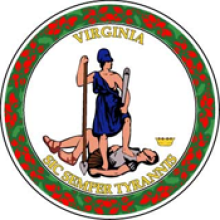By
on

The Roanoke Times recently published an extensive story about broadband, covering everything from what it is to why it is needed and who doesn't have it.
Aside from providing an excellent primer on these issues to those who are new to broadband discussions, Jeff Sturgeon writes about problems often ignored by the media, like the difficulties for companies and other entities can encounter when they need extremely high capacity connections:
Skip Garner directs the Virginia Bioinformatics Institute, which unites the powers of biology and information technology to advance medicine. It is at Virginia Tech. Garner said he, too, finds computing power a constraint. In spite of a 1 gigabit connection, "we are limited in what we could do," Garner said. When the lab's DNA sequencers pile up data, "we will often put it on a 1-terabyte drive ... and FedEx it to our customers," Garner said. An upgrade to 10 gigabits is coming. He expects it still won't be enough. It might appear that new facilities would not have such problems, but even the 5-month-old Virginia Tech Carilion Research Institute near downtown Roanoke is not satisfied with its Web service. While the speed is good at 10 gigabits, the cost it pays to service providers is staggering. "It's in the tens of thousands of dollars a month," said Executive Director Michael Friedlander.This is one world. Communities with their own fiber networks are another -- where these connections are not prohibitively expensive. And yet another world is the world of several rural Minnesota Counties, who cannot even get T.1 lines from incumbent phone providers. In Cook County, in 2008, a company was quoted $600,000 to install a T.1 line. Yes, $600,000 - I had to hear it twice to make sure I wasn't imagining it. The article explores Design Nine founder Andrew Cohill's thoughts on improving broadband access. Cohill mentions Wired West, a network we have written about previously.
"We think it's got to be treated like essential public infrastructure," he said. That way, access would be open to any service provider on equal footing. Just as anyone could launch a cab company or food delivery service over the road system, anyone will be able to use the information highway's new lanes. This creates competition, and competition lowers prices. Cohill has seen it happen elsewhere. One of about 100 U.S. regions getting aggressive in this area is western Massachusetts, where 47 localities combined efforts to install fiber-optic Internet cabling to homes covering about one-quarter of the state, he said. "Their vision is fiber everywhere. Fiber to every home, every business," Cohill said. In western Massachusetts, Cohill ran into Douglas Trumbull, the 68-year-old film director behind the special effects in such films as "2001: A Space Odyssey," "Close Encounters of the Third Kind," "Silent Running" and "Brainstorm." At his home in the area, Trumbull wants a 300 mbps connection to support his continued work in the special effects business; his phone company-provided Web access is too slow. Trumbull said that if high-speed connectivity were available through the region where he lives, "he'd bring 100 more, very high paying movie jobs, technical jobs to western Massachusetts. Why western Massachusetts? He thinks it's a beautiful place to live. It's the same mountain chain as down here. So there's tremendous opportunities, but it's not about attracting another manufacturer," Cohill said.And finally, the article returns to a network in their own backyard -- the Wired Road, a publicly owned open access network.
Fiber optic-based Web service from three providers is available at 60 buildings in downtown Galax over lines installed by a three-government authority. The Galax-based Wired Road Broadband Authority expects to finish this year with $3 million raised and spent out of a $42 million plan to connect every home, business and community institution in Galax and the counties of Carroll and Grayson, a region of about 54,000 people, that will want Internet services that require fiber. Private telecommunications providers could not be counted on to do the work, because the payback would have been too low, said Mike Maynard, a Grayson County supervisor who chairs the Wired Road board. "The only reason we're in this is to get people connected," Maynard said. "If we had to wait for private entities to invest $42 million in the region, I don't know that it would ever happen."Exactly. Many communities are realizing they need to invest in themselves before anyone else will invest in them. Unfortunately, Virginia is one of many states that have created unique barriers to discourage community networks. We should be long past coddling monopolies with laws to restrict communities from building the networks they need. But in Virginia, we aren't.







